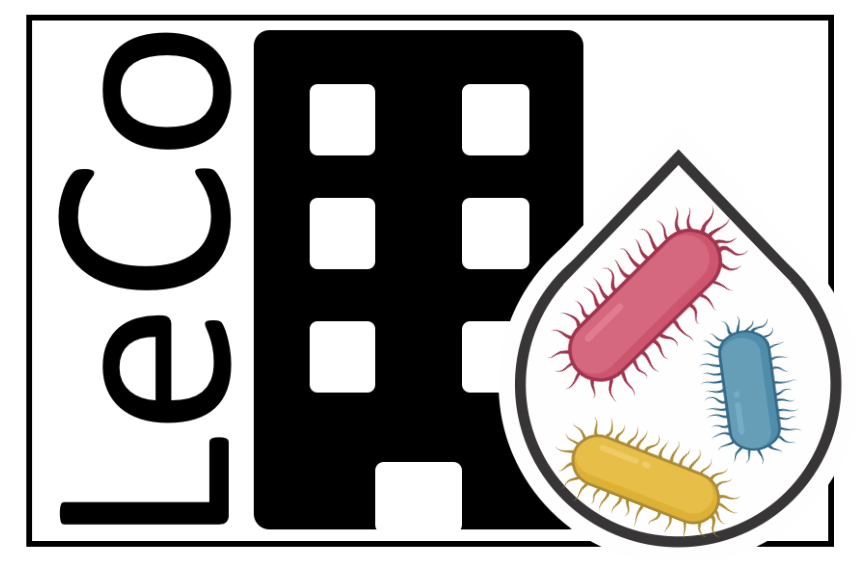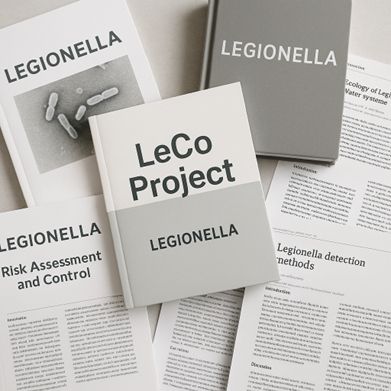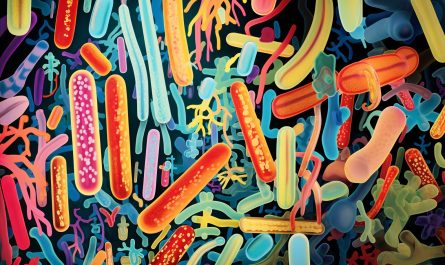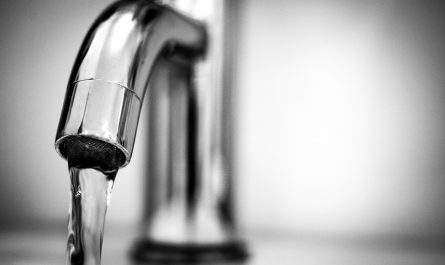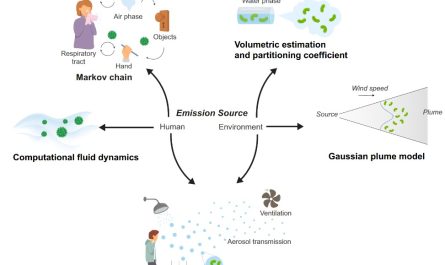In den vergangenen fünf Jahren haben fünf multidisziplinäre Forschungsgruppen im Rahmen des LeCo-Projekts zusammengearbeitet, um eine Vielzahl von Fragestellungen rund um Legionella und die Legionärskrankheit zu untersuchen. Ihre Arbeiten befassten sich unter anderem mit Themen wie Risikobewertung, Quellenidentifikation, Nachweismethoden, Ökologie sowie Desinfektions- und Kontrollstrategien in Trinkwassersystemen von Gebäuden. Mit dem nun bevorstehenden Abschluss des LeCo-Projekts sind einige Datenanalysen und die Übertragung der Forschungsergebnisse in die Praxis noch im Gange. Nichtsdestotrotz wurde ein wesentlicher Teil der Ergebnisse und Erkenntnisse bereits über verschiedene lokale und peer-reviewte Veröffentlichungen geteilt. Alle wissenschaftlich begutachteten Veröffentlichungen sind Open Access und können über die unten stehenden Links heruntergeladen werden.
Peer-reviewte Veröffentlichungen
- Cavallaro et al. (2022): Potential probiotic approaches to control Legionella in engineered aquatic ecosystems. FEMS Microbiology Ecology 98: p.fiac071. https://doi.org/10.1093/femsec/fiac071
- Cavallaro et al. (2023): Legionella relative abundance in shower hose biofilms is associated with specific microbiome members. FEMS Microbes 4: p.xtad016. https://doi.org/10.1093/femsmc/xtad016
- Cavallaro et al. (2024): The impact of DNA extraction on the quantification of Legionella, with implications for ecological studies. Microbiology Spectrum 12(8): pp.e00713-24. https://doi.org/10.1128/spectrum.00713-24
- Fischer et al. (2023): ‚Legionnaires‘ disease in Switzerland: rationale and study protocol of a prospective national case-control and molecular source attribution study (SwissLEGIO). Infection 51: 1467–1479. https://doi.org/10.1007/s15010-023-02014-x
- Margot et al. (2024): Dynamics of drinking water biofilm formation associated with Legionella spp. colonization. npj Biofilms and Microbiomes, 10: 101. https://doi.org/10.1038/s41522-024-00573-x
- Rhoads and Hammes (2021): Growth of Legionella during COVID-19 lockdown stagnation. Environ-mental Science: Water Research & Technology 7: 10-15. https://doi.org/10.1039/D0EW00819B
- Rhoads et al. (2022): Variable Legionella response to building occupancy patterns and precautionary flushing. Microorganisms 10:555. https://doi.org/10.3390/microorganisms10030555
- Sylvestre et al. (2025): Quantification of Legionella pneumophila in building potable water systems: a meta-analysis comparing qPCR and culture-based detection methods. PLOS Water 4: e0000291. https://doi.org/10.1371/journal.pwat.0000291
- Tang et al. (2024): Applications of quantitative microbial risk assessment to respiratory pathogens and implications for uptake in policy: A state-of-the-science review. Environ Health Perspect 132: 56001. https://doi.org/10.1289/EHP12695
- Tang et al. (2025): Modelling exposure to aerosols from showers: implications for microbial risk assessment. Building and Environment 275:112825. https://doi.org/10.1016/j.buildenv.2025.112825
Eingereichte Manuskripte
- Gabrielli et al. (2024): Expansion, restructuring and characterization of the Legionellaceae family. bioRxiv. https://doi.org/10.1101/2024.10.21.619444
- Cavallaro et al. (2024): Variable inhibition of different Legionella species by antagonistic bacteria. bioRxiv, https://doi.org/10.1101/2024.11.27.625680
- Hammes et al. (2025) Foresight 2035: A perspective on the next decade of research on the management of Legionella spp. in engineered aquatic environments. FEMS Microbiology Reviews (in review)
- Tang et al. (2025): Impacts of dynamic aerosol and pathogen concentrations on risks of Legionella pneumophila for Public Showers in Switzerland Using a Quantitative Microbial Risk Assessment Framework (submitted)
Weitere Veröffentlichungen
- Bigler and Mäusezahl (2025): Die Legionärserkrankung in der Schweiz: Eine nationale Fall-Kontroll-Studie zur Untersuchung von Risikofaktoren und Infektionsquellen (SwissLEGIO). BAG Bulletin, in press.
- Boss et al. (2020): Legionellen-Nachweismethoden im Vergleich – Fallabklärungen: Resultate abhängig von Analysemethode und Beprobungstechnik. Aqua und Gas. Aqua & Gas | Plattform für Wasser, Gas und Wärme | 20200608_A&G6_Legionellen-Nachweismethoden im Vergleich
- Cavallaro et al. (2021): Molekularbiologische Methoden. Charakterisierung von Legionellen. Aqua & Gas . Aqua & Gas | Plattform für Wasser, Gas und Wärme | 20211126_A&G_Charakterisierung von Legionellen
- Fischer (2023): Epidemiologische Abklärungen zu Legionellosefällen in der Schweiz. Die Planer -VDI 7 Hygienetagung. DIE_PLANER_HT_2023_Tagungsband.pdf
- Margot et al. (2021): Une étude de cas de contrôle des légionelles par la température. Aqua & Gas . Aqua & Gas | Plateforme pour l’eau, le gaz et la chaleur | 20210831_Légionelles et eau potable – étude de cas
- Mäusezahl et al. (2023): Erreger auf rätselhaftem Vormarsch. Fieldnotes (5) Wissenschaftsmagazin, R.Geigy-Stiftung. Fieldnotes No. 5 by Swiss TPH – Issuu
- Rhoads et al. (2020): Responding to Water System Stagnation in Buildings with Reduced or No Water Use: A framework for Building Managers. American Water Works Association, IAPMO. Responding to Water Stagnation in Buildings with Reduced or No Water Use
- Rölli et al. (2020): Mal schnell eine Wasserprobe nehmen. Aqua & Gas. Aqua & Gas | Plattform für Wasser, Gas und Wärme | 20201209_A&G12_Mal schnell eine Wasserprobe nehmen
- Staub and Mäusezahl (2024): Hartnäckige, ungebetene Gäste. Planer & Installateur, 4-24. Hartnäkkige, ungebetene Gäste | Gebäudetechnik
- Methode MW 101 «Untersuchung von Gebäude-Trinkwasserinstallationen auf Legionellen Beprobungsstrategie und Probenahme» (09/2021) des Schweizerischen Verein des Gas- und Wasserfaches (SVGW). Methodenkatalog | SVGW
Dissertationen
- Cavallaro (2024): The diversity of interactions between Legionella species and aquatic bacteria. ETH Dissertation No. 30330. https://doi.org/10.3929/ethz-b-000698820
- Margot (2024): Legionella in biofilms: Initial colonization and impact of environmental factors. https://doi.org/10.3929/ethz-b-000704478
- Tang (2025): Quantitative microbial risk assessment of Legionella pneumophila relating shower monitoring results to infection risk outcomes. https://doi.org/10.3929/ethz-b-000730128
